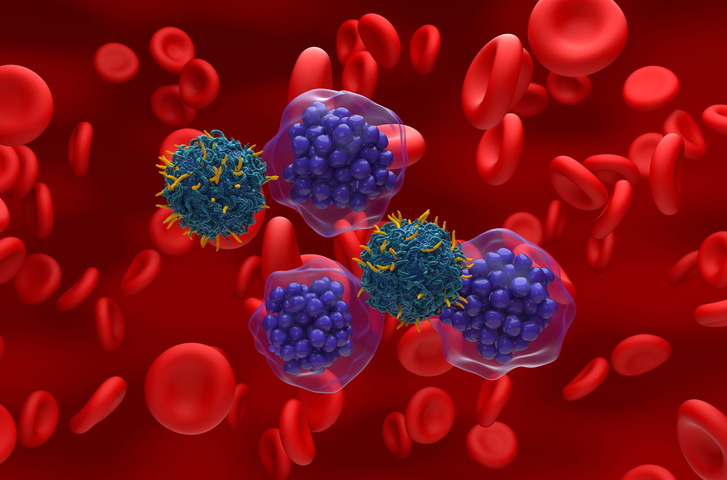
Time to complete response within 24 months (TTCR24) and complete response at 24 months (CR24) metrics could serve as “informative and valid” early predictors of treatment effect on progression-free survival (PFS) in clinical trials on extranodal marginal zone lymphoma (EMZL), according to a study in Blood.
“TTCR24 predicted 95% and… CR24 mediated 90% of the treatment effect on long-term PFS,” wrote lead author, Côme Bommier, MD, of the Mayo Clinic in Rochester.
There are prognostic markers for EMZL, but there were previously no validated surrogate markers. “Surrogate markers provide early decision-making endpoints for regulatory agencies” that could help expedite the use of novel treatments, explained Dr. Bommier and colleagues.
Predictive Markers for Marginal Zone Lymphoma Treatment Effect
The study reviewed data from the phase III IELSG19 trial that demonstrated the advantages of doublet therapy with rituximab plus chlorambucil versus either agent as monotherapy. Researchers applied two methods of analysis to determine if TTCR24 and CR24 were effective surrogate markers for PFS at year eight.
Among 401 participants, 264 (66%) achieved a CR within 24 months, of which 222 (84%) had sustained their CR at the 24-month timepoint. The doublet therapy group had a significantly higher cumulative incidence of CR over time (hazard ratio, 1.75; P<.001), authors noted. Overall, the doublet therapy group was associated with a shorter TTCR24 and increased CR24 and eight-year PFS rates.
Overall, TTCR24 predicted an estimated 95% (95% CI, 0.27-1.87) of the treatment effect on eight-year PFS in patients with EMZL, and 90% of the treatment effect on eight-year PFS was represented by CR24, whose “natural indirect effect was significant throughout the follow-up,” the authors summarized.
Reference
Bommier C, Zucca E, Chevret S, et al. Early complete response as validated surrogate marker in extranodal marginal zone lymphoma systemic therapy. Blood 2023; blood.2023020984. doi: https://doi.org/10.1182/blood.2023020984






 © 2025 Mashup Media, LLC, a Formedics Property. All Rights Reserved.
© 2025 Mashup Media, LLC, a Formedics Property. All Rights Reserved.